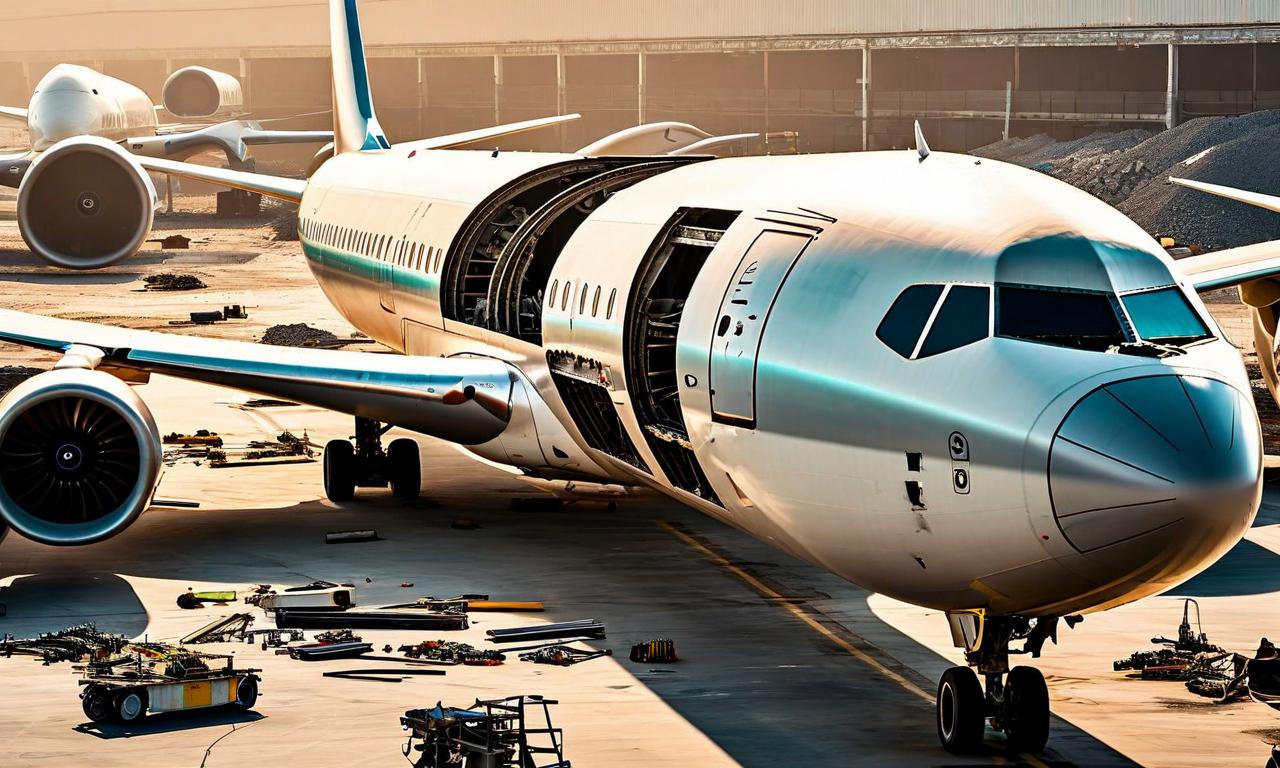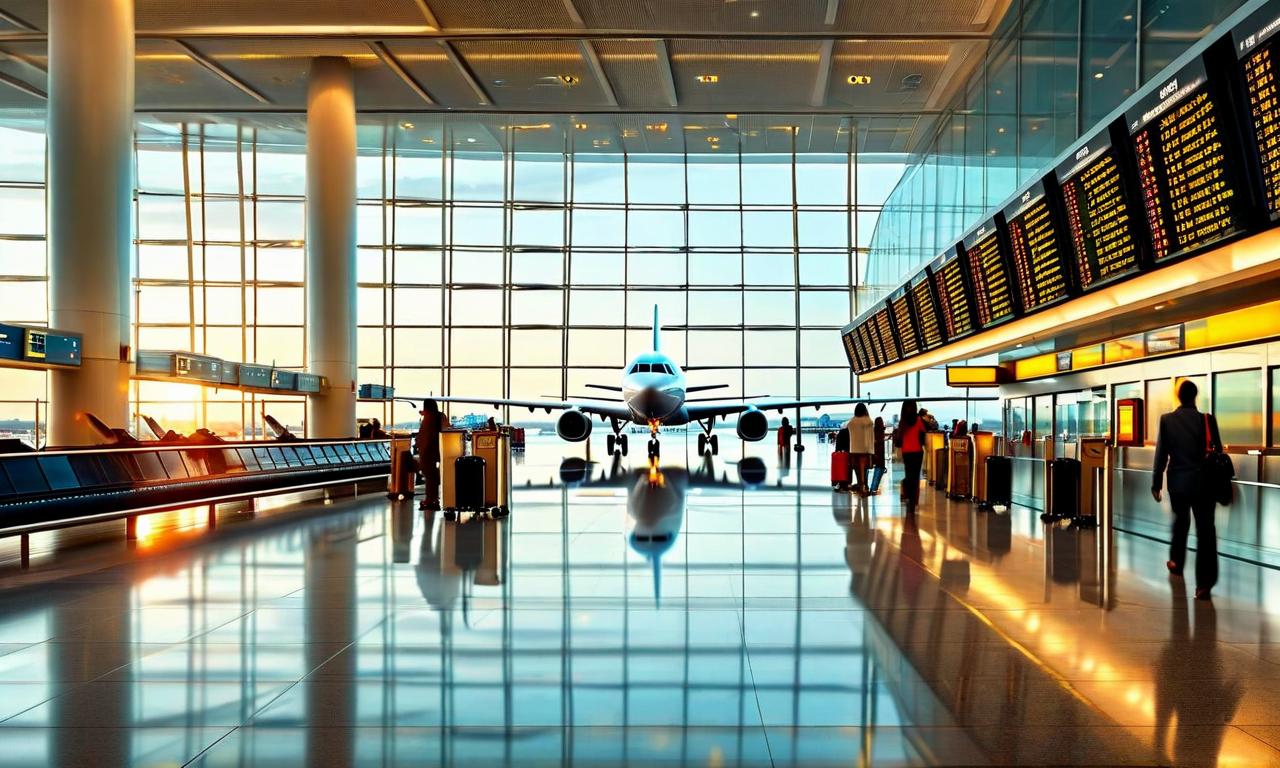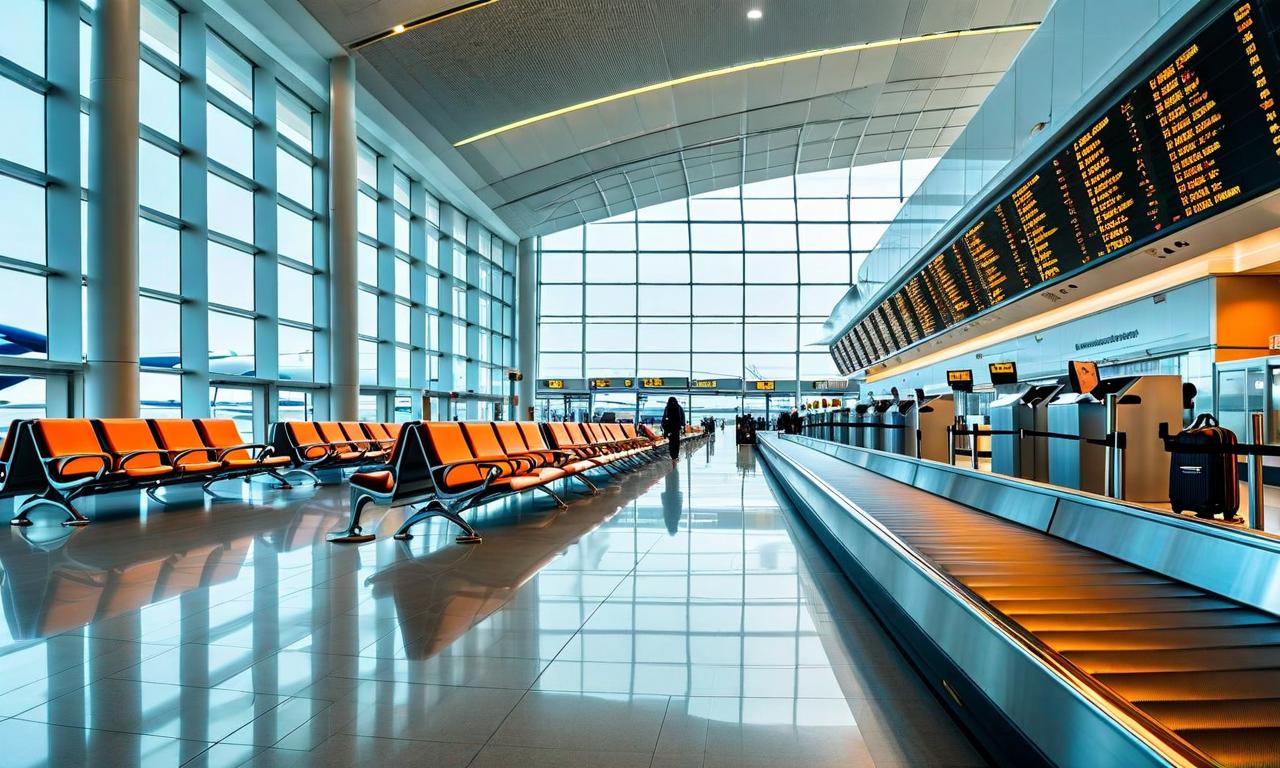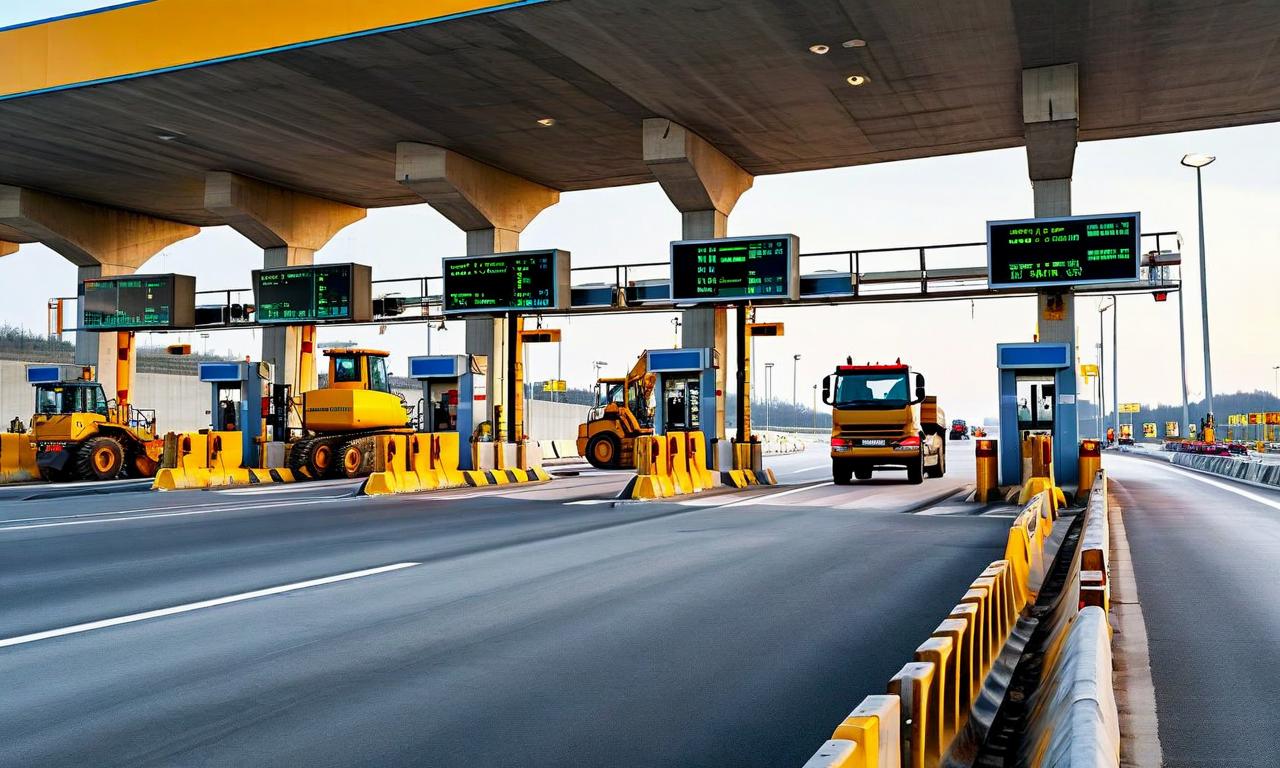IndiGo's Young A321neo Aircraft Scrapped for Parts Amid Supply Chain Challenges
Two Airbus A321neo aircraft, previously operated by IndiGo and only six years old, are being dismantled in Spain. This unexpected move is driven by financial considerations, with the parts valued higher than the whole aircraft. Each plane's dismantled parts are worth ₹373-468 crore, while the entire aircraft's market value is about ₹356 crore. The decision reflects ongoing supply chain disruptions in the aviation industry, particularly affecting the A320neo family. This situation has led to increased demand for serviceable parts and may influence future fleet management strategies across the industry.

*this image is generated using AI for illustrative purposes only.
In a surprising turn of events, two Airbus A321neo aircraft previously operated by Interglobe Aviation , India's largest airline under the brand IndiGo, are being dismantled in Spain after just six years of service. This development highlights the ongoing supply chain disruptions affecting the aviation industry and raises questions about the lifecycle management of modern aircraft.
Early Retirement
The two A321neo aircraft, delivered new to IndiGo in 2019, were originally expected to have a service life of 20-25 years. However, they were returned to UK-based lessor Deucalion Aviation in February when their lease agreement expired. Subsequently, aftermarket specialist Setna iO acquired the aircraft for dismantling in Castellon, Spain.
Financial Logic Behind the Decision
The decision to dismantle these relatively young aircraft is driven by compelling financial considerations:
- Part-out Value: Each aircraft's dismantled parts are estimated to be worth between ₹373.00 crore to ₹468.00 crore ($45-56.5 million).
- Engine Value: The engines alone are valued at ₹126.00 crore to ₹177.00 crore ($15.2-21.4 million) each.
- Current Market Value: In contrast, the entire aircraft's current market value is approximately ₹356.00 crore ($43 million).
This significant disparity between the value of parts and the whole aircraft has led to the unusual decision to dismantle planes that would typically remain in service for many more years.
Industry-wide Supply Chain Challenges
The dismantling of these young aircraft occurs against the backdrop of ongoing supply chain disruptions that are impacting aircraft production and maintenance globally. These challenges are particularly acute for the A320neo family, which includes the A321neo.
Implications for Airlines
Airlines worldwide, including IndiGo, are facing difficulties in sourcing spare parts for their fleets. This situation has led to:
- Increased demand for serviceable parts from dismantled aircraft.
- Potential changes in fleet management strategies.
- Possible reconsideration of aircraft leasing and ownership models.
As the aviation industry continues to navigate these challenges, the early retirement and dismantling of young aircraft may become a more common occurrence, reflecting the complex interplay between aircraft values, parts availability, and operational needs in a disrupted global supply chain environment.
While Interglobe Aviation has not commented specifically on this development, it underscores the dynamic nature of fleet management decisions in the current aviation landscape. As airlines worldwide adapt to these challenges, the industry will be watching closely to see how such strategies evolve and impact long-term fleet planning and operational efficiency.
Historical Stock Returns for Interglobe Aviation
| 1 Day | 5 Days | 1 Month | 6 Months | 1 Year | 5 Years |
|---|---|---|---|---|---|
| +2.52% | -0.09% | +5.70% | -18.30% | +9.63% | +206.76% |



































